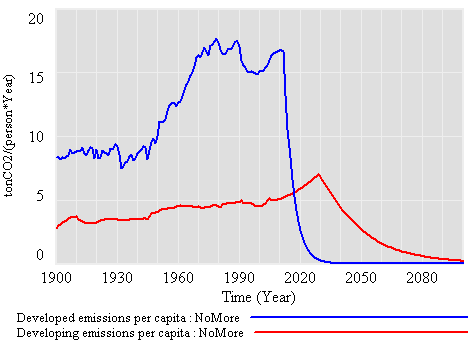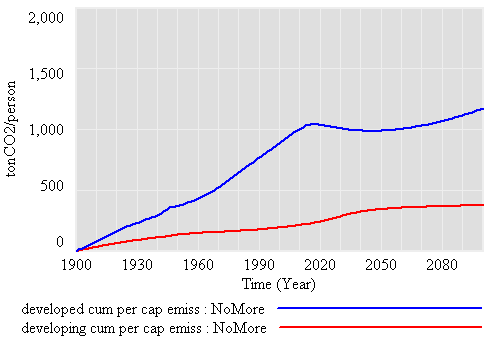A lot of the draft agreements floating around reference a principle of equity in cumulative emissions budgets. For example, the latest AWG-LCA draft,
A long-term aspirational and ambitious global goal for emission reductions, as part of the shared vision for long-term cooperative action, should be based on the best available scientific knowledge and supported by medium-term goals for emission reductions, taking into account historical responsibilities and an equitable share in the atmospheric space;
That’s a nice sentiment, but the goals expressed here are not compatible. If you take “aspirational and ambitious” to mean 55oppm – much less stringent then a 1.5 or 2C target – we’re already halfway or more through civilization’s cumulative emissions budget. Most of the historic emissions occurred in the 20th century. The rest will happen this century. The problem is, there are a lot more people around this century than last. Therefore, this century’s remaining emissions budget just isn’t big enough to make up for historic inequity in emissions, even if you allocate it all to the developing world.
For example, here’s a scenario in which the developed world stops emitting almost immediately – essentially abandoning its GHG-intensive capital stock – while the developing world pursues a trajectory consistent with a global 50% cut by 2050. Per capita emissions convergence and reversal happens right away:

Even so, that’s nowhere near enough to equalize cumulative per capita emissions:

Pursuit of cumulative emissions equity just isn’t compatible with a stable climate, and anyway it is fallacious to equate emissions and welfare. The Copenhagen agreement, whatever it turns out to be, needs to find a different notion of equity.
